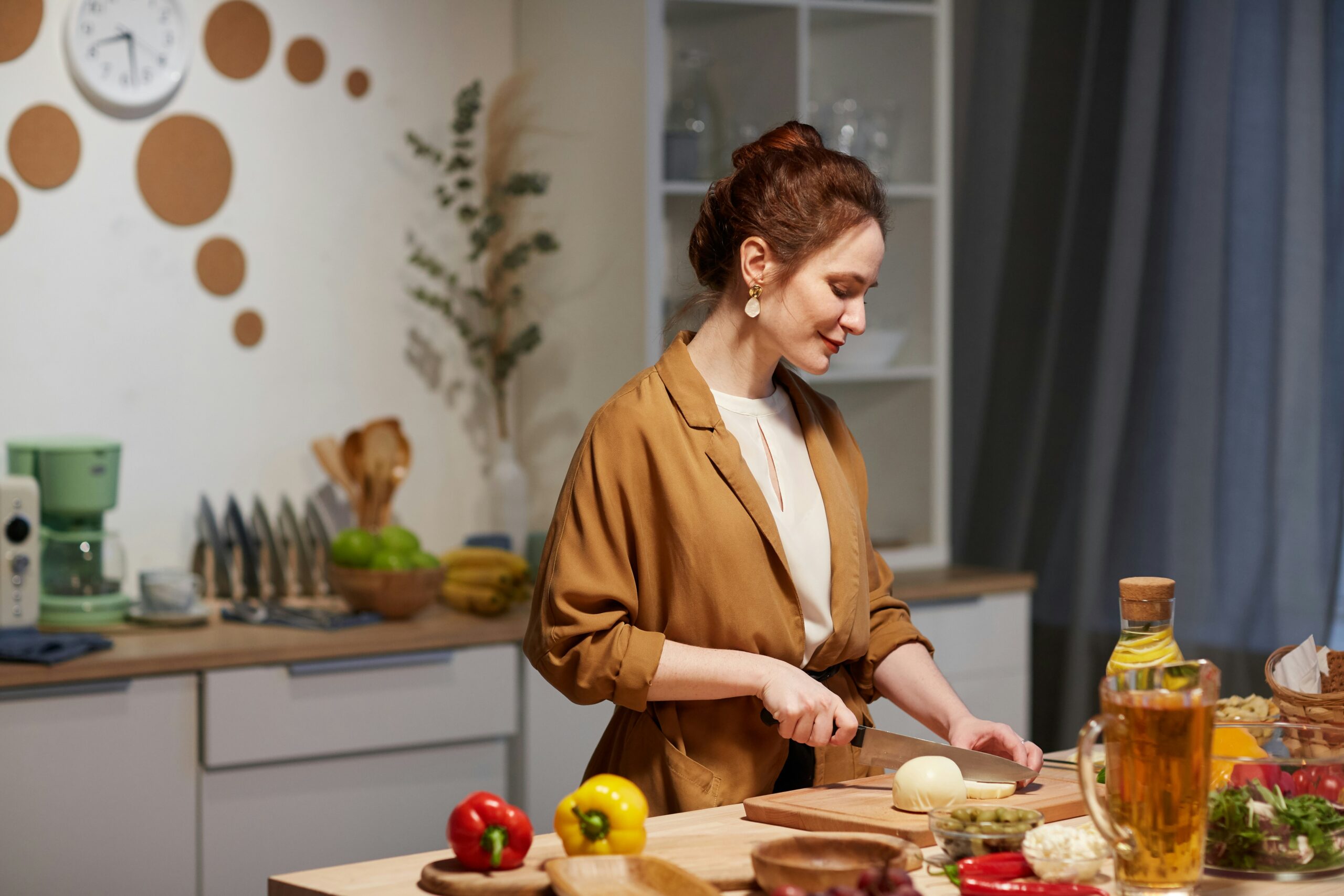
Great cooking starts with great ingredients. Choosing fresh, high-quality produce, meats, and herbs can make all the difference in your dishes. Fresh ingredients often have a richer flavor, which can elevate even the simplest recipes. Look for seasonal ingredients, as they’re usually at their peak taste and nutritional value.
Investing in quality meats and fresh produce may cost more upfront, but it’s worth the investment. They not only taste better but also provide a healthier foundation for your meals. Consider visiting local farmers’ markets or organic stores for a wider variety of ingredients.
Organize Your Kitchen Space
A well-organized kitchen is crucial for efficient cooking. Keep your workspaces clean and organized, and ensure your tools and ingredients are easily accessible. Group similar items together, such as all your baking supplies, cooking oils, and spices, so you don’t have to waste time searching for them.
You also want to keep your knives, pots, and pans within arm’s reach. A clutter-free workspace allows you to stay focused and makes cooking more enjoyable. Keeping everything organized reduces the stress of cooking and helps maintain a smooth flow in the kitchen.
Master Cooking Techniques
One of the key aspects of becoming a better home chef is mastering basic cooking techniques. Whether it’s sautéing, roasting, or grilling, knowing how to execute these techniques correctly is essential for great meals.
For example, when sautéing vegetables, use medium-high heat and avoid overcrowding the pan to ensure even cooking. If you’re roasting meats or vegetables, be sure to preheat your oven to the right temperature, and don’t rush the cooking process. By learning the nuances of each technique, you’ll have more confidence in the kitchen and produce better meals.
Experiment with Herbs and Spices
Herbs and spices are the heart of flavor in cooking. They can completely transform a dish, and the right combination can take your cooking to the next level. Start by experimenting with fresh herbs like basil, rosemary, and thyme. These can add layers of flavor to your meals and bring out the best in other ingredients.
In addition to herbs, spices such as cumin, paprika, and turmeric can add a unique depth to your cooking. Don’t be afraid to experiment with different spice blends and flavors, but always remember to start with a small amount. You can always add more, but you can’t take it out once it’s in!
Focus on Proper Cooking Temperatures
Temperature is critical in cooking, especially when it comes to meats and baking. Different dishes require different temperature settings to achieve the right texture and flavor. For meats, use a thermometer to check for doneness, ensuring you avoid undercooking or overcooking.
When baking, ensure your oven is preheated to the correct temperature before placing your dish inside. This ensures even cooking and helps you achieve the perfect crust, rise, or caramelization. Cooking at the proper temperature is one of the easiest ways to improve your results.
Simplify with Meal Prepping
Meal prepping is a game-changer for home chefs. By preparing ingredients or meals in advance, you can save time and make cooking a less stressful experience. Chop vegetables, marinate meats, or cook grains like rice and quinoa ahead of time so they’re ready to go when you need them.
With everything prepared, you’ll have more time to focus on the cooking process rather than rushing through it. Meal prepping not only saves time but also ensures that you have healthy, home-cooked meals ready to go throughout the week.
Taste as You Go
One of the biggest mistakes new chefs make is not tasting their food throughout the cooking process. Tasting as you go is crucial to ensuring your dish is well-seasoned and balanced. After adding ingredients, take a quick taste to see if it needs more salt, acidity, or sweetness.
If a dish is too salty, try adding a bit of acidity with lemon juice or vinegar. If it’s lacking flavor, add a boost with herbs or a pinch of spice. Tasting helps you fine-tune flavors and ensures that your dish turns out just as you intended.
Pay Attention to Presentation
How you present a dish can influence how it’s enjoyed. People eat with their eyes first, so take a moment to make your plate look inviting. A simple garnish, such as a sprig of fresh herbs, a drizzle of sauce, or a sprinkle of grated cheese, can visually elevate the dish.
Plating is all about balance – ensure your plate has a variety of colors, textures, and shapes. A well-plated dish shows the care and attention you’ve put into making it, and it can make the meal feel more special, even if it’s just a simple weeknight dinner.
By incorporating these tips into your home cooking routine, you’ll not only improve your culinary skills but also start to feel more confident in the kitchen. With practice and patience, you’ll be able to create dishes that are flavorful, visually appealing, and full of personality.